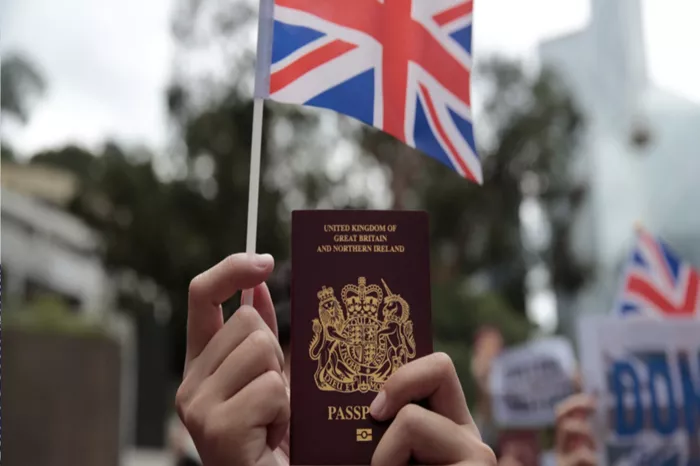After the United Kingdom’s departure from the European Union, known as Brexit, the rules regarding travel between the UK and Europe have significantly changed. British citizens can no longer rely on the freedom of movement they once enjoyed as EU members. While Brexit has brought some changes to the way British citizens travel to Europe, it’s important to understand the new rules clearly, as they can vary depending on the purpose of the trip and the duration of stay.
This article will provide a detailed overview of the new visa requirements for British citizens traveling to the EU and the Schengen Area, including the visa-free travel options, what happens when staying for longer than 90 days, and some important changes such as the European Travel Information and Authorisation System (ETIAS) and the Entry/Exit System (EES).
Visa-Free Travel: Short Stays Without a Visa
One of the key changes after Brexit is the ability for British citizens to travel to the EU and the Schengen Area for up to 90 days within a 180-day period without needing a visa. This visa-free arrangement applies to various purposes, including tourism, business trips, family visits, and other short stays. British citizens can spend up to three months in the EU or Schengen zone for any of these purposes, provided that they do not exceed the 90-day limit within any 180-day period.
It is important to note that this rule applies to the Schengen Area, which includes most EU countries, but not all European countries. Some countries like Ireland are not part of the Schengen Area, and the visa-free travel rules for them are different, as detailed below.
What Happens for Longer Stays?
For stays longer than 90 days, British citizens will need a visa or residence permit, depending on the country they plan to stay in and the purpose of their visit. If British citizens intend to stay in the EU or Schengen Area for longer periods, they may need to apply for a national visa or permit.
For example, if you plan to live, work, or study in an EU country for more than three months, you will need to apply for the appropriate visa or residence permit before your arrival. The specific requirements can vary by country, so it is essential to check the regulations of the country you plan to stay in.
Entry/Exit System (EES): New Requirements Starting in 2025
One significant change that will take effect in 2025 is the Entry/Exit System (EES). This system will require all travelers, including British citizens, to register their biometric details (such as fingerprints and photographs) when they first enter the Schengen Area.
The EES will help improve security and streamline border controls across the Schengen Area. The system will automatically track the duration of travelers’ stays and will notify authorities if someone exceeds their allowed time in the Schengen Area.
For British citizens, this means that when traveling to Europe, they will be required to provide their biometric data during their entry into the Schengen Area for the first time. It is important to note that the EES applies only to border crossings into the Schengen Area.
European Travel Information and Authorisation System (ETIAS)
In addition to the Entry/Exit System, another major change for British citizens will be the introduction of the European Travel Information and Authorisation System (ETIAS), which is set to become mandatory in 2025.
The ETIAS is an electronic travel authorization system that requires travelers to apply online before their trip. British citizens will need to apply for ETIAS authorization before traveling to the Schengen Area. The application will require travelers to provide basic personal information, travel plans, and answer questions related to security and health.
While the process of obtaining ETIAS approval is generally straightforward, it is important to plan ahead and submit the application at least a few days before travel. ETIAS approval is expected to be valid for three years, and it will cover multiple trips within the Schengen Area, as long as the traveler adheres to the 90-day limit within any 180-day period.
Ireland: A Different Case
Unlike most of the EU and Schengen Area countries, Ireland does not participate in the Schengen Area. Therefore, the visa-free travel rules applicable to the Schengen Area do not apply to Ireland.
British citizens do not need a visa to enter Ireland, but they may be subject to different immigration controls, including border checks. British citizens wishing to live, work, or study in Ireland for an extended period will need to comply with Irish visa and immigration requirements.
Residence Rights: What About British Citizens with EU Residence Rights?
Another important consideration for British citizens is their residence rights under the EU-UK Withdrawal Agreement.
British citizens who were residing in an EU country before Brexit may have acquired residence rights under the Withdrawal Agreement. These citizens are not subject to the same visa requirements as other British nationals.
If you have residence rights in an EU country under the Withdrawal Agreement, you do not need a visa to enter that country or to travel to other EU countries for short stays. However, you may still need to comply with local regulations regarding your status and residency.
Conclusion
British citizens with residence rights under the EU-UK Withdrawal Agreement do not need a visa to enter their country of residence or other EU countries for short stays.
With these updates to the travel rules for British citizens post-Brexit, it’s important to stay informed and plan ahead for any upcoming trips to the EU or Schengen Area. By understanding the new requirements, you can ensure smooth travel and avoid any complications at the border.

